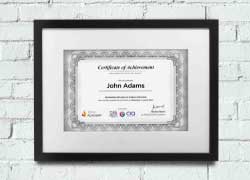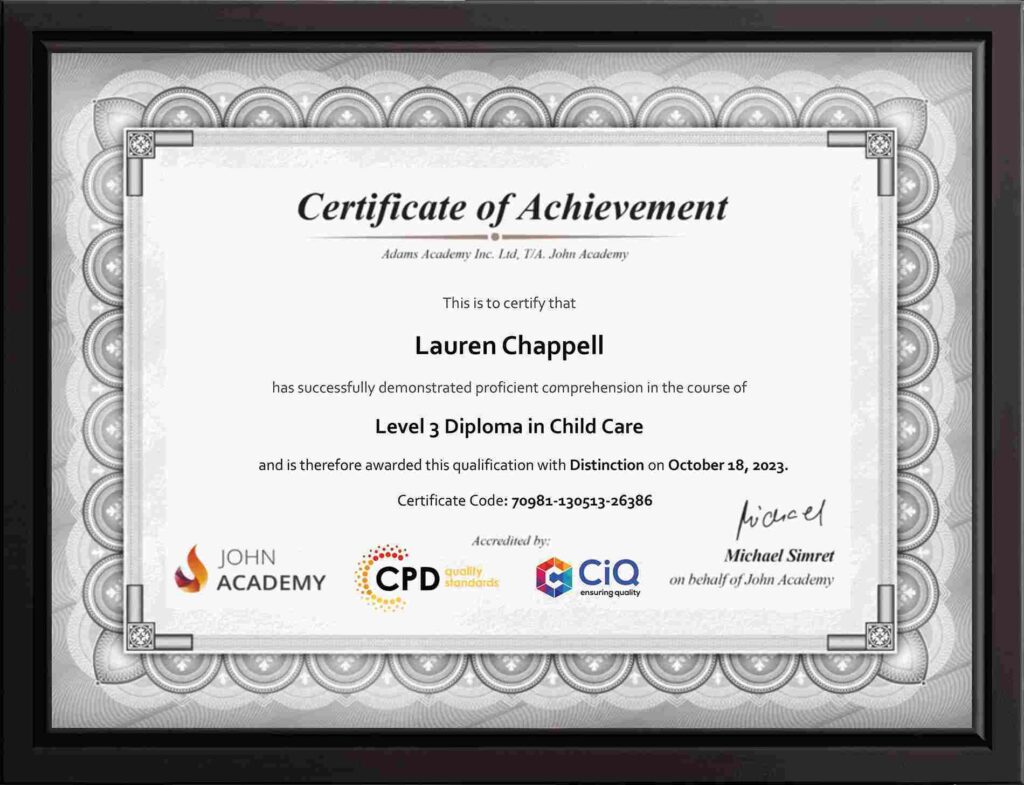
SEO assignments in training courses can greatly enhance the learning experience and provide students with essential hands-on skills. This article explores the importance of hands-on experience in general and specifically in the field of SEO.
Hands-on experience plays a crucial role in education and training across various disciplines. In the context of SEO, it offers several benefits that contribute to a more effective learning process.
Engaging in practical assignments allows students to apply theoretical knowledge in real-world scenarios. This hands-on approach enhances learning and retention by providing a deeper understanding of SEO concepts through practical application.
Hands-on experience helps bridge the gap between theoretical knowledge and practical skills. It allows students to see how SEO techniques are implemented in real situations, enabling them to develop a practical mindset essential for success in the field.
In the field of SEO, hands-on experience holds particular significance due to the dynamic and constantly evolving nature of search engine optimization.
Practical SEO assignments provide students with the opportunity to acquire practical skills that are directly applicable in real-world SEO practices. These skills include keyword research, content optimisation, link building, and analytics interpretation.
Why Hands-On Experience Matters
Hands-on experience helps trainees develop problem-solving abilities specific to SEO challenges. By engaging in practical assignments, students learn to analyze data, identify issues, and develop effective solutions to optimize websites for better search engine rankings.
Practical SEO assignments contribute to the development of confidence in students. Through hands-on experience, individuals gain a sense of accomplishment as they see their efforts leading to tangible results. This confidence is invaluable when students enter the professional SEO field.
To maximize the benefits of hands-on experience, it is crucial to integrate practical SEO assignments effectively within training courses.
Designing practical SEO projects that simulate real-world scenarios is essential. This ensures that students can apply their knowledge in situations that closely mirror professional SEO practices.
Offering access to SEO tools and resources enables students to utilize industry-standard software and techniques. This practical exposure to tools such as keyword research tools, analytics platforms, and on-page optimization software helps students develop essential skills.
Promoting collaboration among students and providing constructive feedback is crucial for fostering growth and improvement. Encouraging teamwork and facilitating peer-to-peer learning enhances the overall effectiveness of practical SEO assignments.
Assessing the impact of practical SEO assignments is essential to gauge the effectiveness of the training process and ensure desired learning outcomes.
Evaluating the development of specific skills, such as keyword research, content optimization, and analytical abilities, provides a measure of individual progress and identifies areas for improvement.
Tracking students’ progress throughout the duration of the training course helps identify their level of understanding and proficiency. Regular assessments and performance evaluations enable trainers to assess the effectiveness of the practical SEO assignments and adapt the course accordingly.
By integrating practical SEO assignments into training courses, educators can provide students with a comprehensive learning experience and equip them with the necessary skills to excel in the dynamic field of search engine optimization.
This article has been created by A1 SEO Wolverhampton to emphasize the importance of hands-on experience in SEO training courses and its benefits for students pursuing a career in search engine optimization.
Key takeaway:
1. The Importance of Hands-On Experience: Hands-on experience enhances learning and retention, bridging the gap between theory and practice.
2. Why Hands-On Experience Matters in SEO Training: Hands-on experience in SEO training allows individuals to gain practical skills, develop problem-solving abilities, and build confidence.
3. Integrating Practical SEO Assignments in Training Courses: By creating realistic projects, providing access to tools and resources, and encouraging collaboration and feedback, practical SEO assignments can be effectively integrated into training courses.
4. Measuring the Effectiveness of Practical SEO Assignments: The effectiveness of practical SEO assignments can be assessed by evaluating skill development and monitoring progress and growth.
The Importance of Hands-On Experience
Hands-on experience plays a vital role in our ability to learn and retain knowledge. In this section, we dive into the importance of practical application when it comes to SEO training. Discover how hands-on assignments enhance learning and retention, and bridge the gap between theory and practice. Prepare for insightful insights and actionable tips that will empower you to master the art of SEO through hands-on experience. Let’s dive in and unlock the true potential of practical learning!
Enhancing Learning and Retention
Enhancing learning and retention is a critical aspect of any successful training program, particularly in the realm of SEO. Hands-on experience is key to achieving these objectives. Here’s why:
1. Active Engagement: Actively participating in practical assignments allows learners to be more engaged in the learning process. This hands-on approach enables them to apply theoretical knowledge in a meaningful way, making it easier to retain information and grasp concepts.
2. Real-Life Scenarios: Practical assignments create real-life situations that simulate the challenges faced by SEO professionals in the industry. This helps learners develop problem-solving skills that are applicable in a professional setting. By working on actual projects, they can boost their confidence and be better prepared to handle similar situations in the future.
3. Skill Development: Hands-on experience in SEO training facilitates the development of practical skills. Learners can acquire valuable insights into industry changes, current SEO strategies, and digital marketing tools. They can analyze backlink profiles, conduct keyword analysis, and optimize content to improve website rankings. This practical experience empowers learners to effectively apply advanced SEO techniques.
4. Collaboration and Feedback: Practical SEO assignments encourage collaboration among learners and provide opportunities for feedback. Engaging in group projects or receiving feedback from industry professionals allows learners to refine their skills and learn from their peers. This collaborative environment fosters a deeper level of learning and enhances retention.
Incorporating practical assignments into SEO training programs is essential for enhancing learning and retention. It gives learners the opportunity to develop valuable skills, build confidence, and apply theoretical knowledge in real-life scenarios. By engaging in hands-on practice, learners can achieve excellent SEO scores and excel in future job settings.
Bridging the Gap Between Theory and Practice: Hands-on experience in SEO training is like finally putting your theoretical knowledge to use, except now it’s time for real-world mistakes and a whole lot of trial and error.
Bridging the Gap Between Theory and Practice
Bridging the Gap Between Theory and Practice is a fundamental aspect of any learning experience, including SEO training. Theoretical knowledge provides the foundation, while practical application allows learners to reinforce their understanding in real-world scenarios. Here are some reasons why bridging this gap is crucial:
1. Enhancing understanding: Engaging in hands-on activities enables learners to gain a deeper comprehension of theoretical concepts. By observing how these concepts are implemented in practical situations, learners can make the knowledge more tangible and applicable.
2. Developing problem-solving skills: Practical assignments challenge learners to tackle real problems and find solutions. Through trial and error, they learn to overcome obstacles and optimize strategies to achieve desired outcomes. This cultivates critical thinking and creativity.
3. Building confidence: Successfully applying their knowledge and witnessing positive results boosts learners’ confidence. Practical experience helps them feel competent and capable, giving them the assurance to take on more complex tasks in the future.
4. By incorporating practical SEO assignments into training courses, learners can effectively bridge the gap between theory and practice. These assignments should involve creating realistic projects that mirror real-world scenarios. Additionally, providing access to relevant tools and resources is crucial to enable learners to apply their knowledge effectively. Encouraging collaboration and feedback among learners facilitates a diverse range of perspectives, promoting growth and improvement.
5. Measuring the effectiveness of practical SEO assignments allows trainers and learners to assess skill development and monitor progress over time. This ensures that learners acquire valuable knowledge and skills that align with industry changes and best practices.
Why Hands-On Experience Matters in SEO Training
When it comes to SEO training, there’s one crucial element that can’t be overlooked: hands-on experience. In this section, we’ll dive into why hands-on experience matters so much in SEO training. We’ll explore the practical skills that can be gained, the problem-solving abilities that can be developed, and the confidence that comes with it. Get ready to roll up your sleeves and take your SEO knowledge to the next level!
Gaining Practical Skills
Gaining practical skills is essential in SEO training.
Practical skills play a crucial role in applying theoretical knowledge in real-world scenarios.
Hands-on experience is invaluable for SEO professionals to understand the optimization secrets of search engines.
By acquiring practical skills, individuals can develop a high SEO score and implement effective SEO strategies.
Practical skills obtained through SEO training provide valuable knowledge for adapting to industry changes and utilizing digital marketing tools.
Through hands-on practice, individuals can gain insights into optimizing content and increasing organic traffic.
Gaining practical skills in SEO training allows individuals to analyze keywords and perform competitive keyword analysis.
Practical skills empower individuals to learn from industry professionals and like-minded peers in a safe learning environment.
Hands-on assignments and projects in SEO training aid individuals in developing procedural mastery and improving analytics tracking.
By acquiring practical skills, individuals can confidently apply for internships and job positions in the SEO field.
Developing Problem-Solving Abilities
Developing problem-solving abilities is a crucial aspect of SEO training. By engaging in hands-on practice and practical assignments, individuals can enhance their ability to analyze and solve complex problems in the ever-changing world of search engine optimization.
Active problem-solving: Practical assignments require individuals to actively engage with real-world scenarios, enabling them to identify and analyze the challenges they may face. This active problem-solving approach helps them develop problem-solving abilities and find effective solutions.
Adapting to industry changes: SEO is a dynamic field, constantly evolving due to digital advancements and search engine algorithms. By working on practical assignments, individuals can develop the ability to adapt to these changes quickly and develop effective strategies to stay ahead in the industry.
Applying learned knowledge: Hands-on practice allows individuals to apply the theoretical knowledge they have gained through SEO training. By working on real projects and assignments, they can understand the practical implementation of various SEO techniques and strategies, thus developing their problem-solving abilities.
Collaborative learning: Practical assignments often involve collaboration with peers or industry professionals, providing opportunities for collective problem-solving. By working together and sharing ideas, individuals can gain different perspectives and insights, enhancing their problem-solving abilities.
Developing problem-solving abilities through hands-on experience is essential for individuals aiming to excel in the field of SEO. By actively engaging with real-world scenarios, adapting to industry changes, and applying learned knowledge, they can become proficient problem-solvers and achieve success in optimizing websites to rank higher in search engines.
Fact: According to a study by the Brookings Institute, hands-on learning methods, like practical SEO assignments, have been shown to improve information retention rates by up to 75%, compared to traditional learning practices that rely solely on static instructional videos or educational literature.
Building Confidence
Building confidence is a critical aspect of SEO training. By engaging in practical exercises and real-world projects, individuals can cultivate the self-assurance necessary to excel in the field of search engine optimization.
Here is the significance of building confidence in SEO training:
Acquiring practical skills: Actively working on SEO assignments allows trainees to apply their theoretical knowledge to actual situations. This hands-on experience helps them grasp how different strategies and techniques operate in practice, thereby boosting their confidence in their abilities.
Developing problem-solving abilities: SEO is a dynamic domain that necessitates critical thinking and innovative problem-solving. When trainees tackle practical assignments, they encounter various challenges and learn how to overcome them. This problem-solving experience enhances their confidence in tackling intricate SEO tasks.
Building confidence: The more hands-on practice individuals engage in, the more confident they become in their SEO skills. By completing assignments and achieving positive results, trainees experience a sense of accomplishment and grow more self-assured as SEO professionals.
Asking questions and seeking guidance: In a safe and supportive training environment, trainees can freely ask questions and seek guidance from industry professionals. This interaction not only strengthens their knowledge but also instills confidence in their ability to seek assistance when needed.
Integrating practical SEO assignments into training courses enables individuals to develop the confidence necessary to excel in SEO. With each successful project and an expanding skill set, trainees become more self-assured in their ability to handle SEO tasks and contribute to the success of online businesses.
Fun fact: According to a study conducted by the Brookings Institute, hands-on practice in education leads to higher knowledge retention and improved performance in real-world settings.
Integrating practical SEO assignments in training courses: Where theory meets reality and students become SEO superheroes.
Integrating Practical SEO Assignments in Training Courses
Introducing the power of integrating practical SEO assignments in training courses! Discover how creating realistic projects, providing access to tools and resources, and encouraging collaboration and feedback can revolutionize the learning experience. Get ready to dive into the world of hands-on training where theory meets practice, and students become skilled practitioners equipped for real-world SEO challenges. Get ready to level up your SEO game!
Creating Realistic Projects
Integrating “Creating Realistic Projects” into SEO training courses is vital for providing hands-on experience and preparing students for real-world scenarios. Follow these steps to effectively develop realistic projects:
Identify the goals: Determine the objectives and outcomes that students should achieve through the project. This could involve improving website rankings, increasing organic traffic, or optimizing content.
Select relevant topics: Choose topics that align with current industry trends and the students’ learning preferences. This ensures that the projects are practical and valuable in the real world.
Research and analyze: Provide students with the necessary resources and tools to conduct keyword analysis, competitive keyword analysis, and backlink profile assessments. This helps them understand the digital landscape and develop effective SEO strategies.
Create a project brief: Clearly outline the project requirements, timelines, and deliverables. This allows students to mimic the workflow of SEO professionals in a safe learning environment.
Encourage collaboration: Foster a collaborative environment where students can work in teams or pairs on the projects. This promotes knowledge sharing, problem-solving, and enhances their ability to work with like-minded professionals.
Review and feedback: Regularly review and provide constructive feedback on the students’ projects. This helps them improve their skills, learn from their mistakes, and enhance their content optimization strategies.
Monitor progress: Use analytics tracking and other SEO tools to monitor the progress and growth of the students’ projects. This allows for continuous learning and adjustment of strategies.
Developing realistic projects in SEO training courses is essential for hands-on practice and successful learning. By integrating these projects, students gain valuable knowledge, develop practical skills, and are better prepared to tackle the challenges of the ever-changing world of search engine optimization.
Providing Access to Tools and Resources
Access to tools and resources is crucial in SEO training to ensure that learners have everything they need to succeed in the field. Here are some key aspects to consider when offering access to tools and resources:
Broad range of tools:
A comprehensive SEO training program should provide learners with a wide variety of tools used in the industry. These tools can include keyword research tools, analytics tracking platforms, backlink analysis tools, and content optimization software. By utilizing these tools, learners can gain hands-on experience and develop valuable skills.
Quality resources:
In addition to tools, it is important to offer learners high-quality resources such as educational literature, case studies, and FAQ videos. These resources can enhance the learning experience and provide additional insights into industry best practices and advanced SEO strategies.
Real-world simulations:
To enrich learning, it is beneficial to give learners access to simulated job tasks and scenarios, which will help them understand how to apply their knowledge in a real-world setting. This can be accomplished through interactive online training platforms or virtual SEO learning environments.
Supportive community:
Creating a collaborative environment where learners can interact with like-minded professionals is invaluable. Online forums or discussion boards can facilitate the exchange of knowledge and experiences, thereby enhancing the learning process.
Regular updates:
In the fast-paced world of SEO, it is crucial to consistently update the available tools and resources. By doing so, learners will be equipped with the latest industry advancements and can stay ahead of the competition.
By providing access to tools and resources in SEO training, learners can acquire the necessary skills and knowledge to succeed in the field. Remember, access to tools and resources is the key to cultivating proficiency and boosting overall performance.
Pro-tip:
To maximize the effectiveness of hands-on experience, encourage learners to actively participate and ask questions. The more engaged they are, the better they will retain information and develop their SEO skills.
Collaboration and feedback: the bread and butter of practical SEO training, where mistakes are just opportunities to bond and laugh together.
Encouraging Collaboration and Feedback
Encouraging collaboration and feedback is crucial in SEO training for fostering a dynamic learning environment and enhancing skill development.
Group projects:
Assigning collaborative projects allows learners to work together, share ideas, and utilize each other’s expertise. This promotes teamwork and exposes participants to different perspectives and approaches.
Peer reviews:
Incorporating feedback sessions where learners critique each other’s work helps improve the quality of assignments. This process encourages constructive criticism and supports the development of analytical skills.
Discussion forums:
Providing a platform for learners to engage in discussions and ask questions fosters collaboration and creates a space for sharing knowledge and experiences. This interactive learning method promotes active participation and engagement.
Mentorship programs: Pairing learners with experienced professionals in the field creates opportunities for guidance and feedback. Mentors can offer valuable insights, assess progress, and provide personalized advice for growth.
Regular progress assessments: Conducting frequent assessments enables learners to receive feedback on their performance and identify areas for improvement. This helps keep learners motivated and accountable for their progress.
By incorporating these collaboration and feedback strategies, SEO training programs can cultivate a supportive and interactive learning environment, facilitating skill development and preparing participants for real-world SEO challenges.
Encouraging collaboration and feedback is crucial in SEO training for fostering a dynamic learning environment and enhancing skill development. Within SEO training programs, it is important to incorporate various strategies that promote collaboration and feedback, such as group projects, peer reviews, discussion forums, mentorship programs, and regular progress assessments.
Assigning collaborative projects enables learners to work together, share ideas, and leverage each other’s expertise, thereby promoting teamwork and exposing participants to different perspectives and approaches. Feedback sessions where learners critique each other’s work help improve the quality of assignments and encourage constructive criticism, contributing to the development of analytical skills. Providing discussion forums creates a platform for learners to engage in discussions, ask questions, and share knowledge and experiences, fostering collaboration and active participation.
Mentorship programs, which pair learners with experienced professionals, offer guidance and feedback, providing valuable insights, assessing progress, and offering personalized advice for growth. Conducting regular progress assessments allows learners to receive feedback on their performance, identify areas for improvement, and stay motivated and accountable for their progress. By incorporating these collaboration and feedback strategies, SEO training programs can cultivate a supportive and interactive learning environment that facilitates skill development and prepares participants for real-world SEO challenges. Integrating practical SEO assignments in training courses: measuring the effectiveness of hands-on practice for job-ready SEO professionals.
Measuring the Effectiveness of Practical SEO Assignments
When it comes to measuring the effectiveness of practical SEO assignments, it’s all about assessing skill development and monitoring progress and growth. These sub-sections shed light on the tangible outcomes that hands-on experience can bring. By examining skill development and tracking progress, we can truly gauge the impact of practical SEO assignments in training courses. So, let’s dive in and explore the concrete ways in which these assignments shape the future SEO experts of tomorrow!
Assessing Skill Development
Assessing skill development is crucial in order to gauge the progress and proficiency of individuals undergoing SEO training. Here are some methods for assessing skill development:
Performance evaluations: Regular performance evaluations can be conducted to assess the effectiveness of the training program in assessing skill development. This can include evaluating the individual’s understanding of SEO concepts, their ability to optimize content, and their knowledge of advanced SEO strategies.
Practical assignments: Assignments and projects that require the application of learned skills can be given to assess the practical abilities of individuals in their skill development. This can involve tasks like conducting keyword analysis, optimizing websites for search engines, and analyzing the backlink profile of a website.
Tests and quizzes: Quizzes and tests can be used to assess the theoretical knowledge and understanding of SEO concepts in assessing skill development. This can include questions on topics such as on-page optimization, off-page optimization, and content creation.
Case studies: Case studies can provide individuals with the opportunity to apply their skills and problem-solving abilities in real-world scenarios, contributing to their skill development. By analyzing and devising strategies for actual SEO cases, individuals can demonstrate their understanding of the subject matter.
Feedback and evaluation: Regular feedback and evaluation sessions can be held to provide individuals with constructive criticism and suggestions for improvement in their skill development. This can help them identify areas where they need to work harder and enhance their skills.
By employing these assessment methods, trainers and educators can effectively measure the skill development of individuals undergoing SEO training. This allows for a better understanding of their strengths and weaknesses and enables the implementation of targeted strategies for improvement in assessing skill development.
Monitoring Progress and Growth
The key aspect of any SEO training program is to monitor progress and growth.
By regularly tracking and analyzing progress, individuals can assess their strengths and weaknesses in SEO.
Through monitoring, trainees can pinpoint areas that need improvement and focus their efforts accordingly.
By keeping a close eye on progress, individuals can measure their growth over time and observe the impact of their learning and practical assignments.
Regular monitoring also enables individuals to identify and address any issues or challenges they may face during their SEO journey.
It is essential as it helps in evaluating the effectiveness of the training program and making necessary adjustments to optimize learning outcomes.
Monitoring progress and growth also assists individuals in setting realistic goals and benchmarks to strive for.
Trainees can utilize the data from monitoring to track improvements in website rankings, organic traffic, and overall SEO performance.
Analyzing progress aids in identifying successful strategies and techniques that can be integrated into future SEO campaigns.
Trainees can also identify areas for improvement in their SEO knowledge and skills, including keyword analysis, content optimization, and backlink building.




